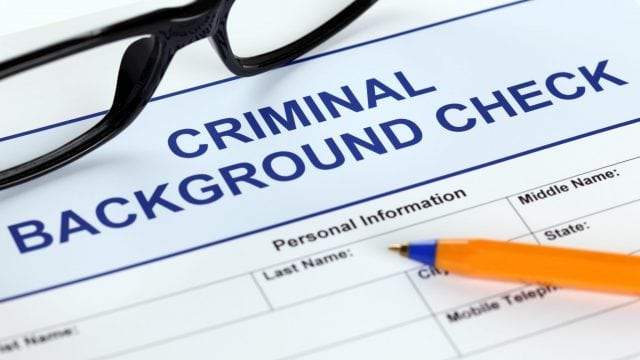 If you are interested in a resisting arrest expungement in New Jersey, this article will address expungement eligibility with respect to the offense of resisting arrest.
If you are interested in a resisting arrest expungement in New Jersey, this article will address expungement eligibility with respect to the offense of resisting arrest.
Resisting Arrest – Basic Concepts
The New Jersey statute dealing the offense of resisting arrest is located at N.J.S.A. 2C:29-2a. That statute reads as follows:
(1) Except as provided in paragraph (3), a person is guilty of a disorderly persons offense if he purposely prevents or attempts to prevent a law enforcement officer from effecting an arrest. (2) Except as provided in paragraph (3), a person is guilty of a crime of the fourth degree if he, by flight, purposely prevents or attempts to prevent a law enforcement officer from effecting an arrest. (3) An offense under paragraph (1) or (2) of subsection a. is a crime of the third degree if the person: (a)Uses or threatens to use physical force or violence against the law enforcement officer or another; or (b)Uses any other means to create a substantial risk of causing physical injury to the public servant or another.
It is not a defense to a prosecution under this subsection that the law enforcement officer was acting unlawfully in making the arrest, provided he was acting under color of his official authority and provided the law enforcement officer announces his intention to arrest prior to the resistance.
Thus, resisting arrest occurs when an individual purposely prevents or attempts to prevent an officer from effecting an arrest. As can be seen, the level of the offense will depend on the nature of the defendant’s resisting.
Resisting arrest will be a third-degree indictable offense (felony) under two circumstances. The first is when the defendant used or threatens to use force against the law enforcement officer. The second is when the defendant creates a substantial risk of physical injury to the law enforcement officer or to any other individuals.
When the defendant resists arrest by fleeing, the offense will constitute a fourth-degree crime. Otherwise, the offense of resisting arrest will be classified as a disorderly persons (misdemeanor) offense.
Resisting Arrest Expungement Eligibility – Disorderly Persons Conviction
If you plead guilty to or were found guilty of the disorderly persons offense of resisting arrest, expungement eligibility is governed by N.J.S.A. 2C:52-3. In general, if you have been convicted of anywhere from one to three disorderly or petty disorderly persons offenses in New Jersey, you may expunge up to three of those offenses so long as you do not have any indictable (felony) convictions. If you have been convicted of an indictable offense, you can expunge the indictable offense and up to two disorderly or petty disorderly persons offenses.
You will not be eligible, however, to expunge your resisting arrest conviction if you have been convicted of more than four disorderly or petty disorderly persons offenses or if you have more than one indictable conviction on your record.
The standard waiting period to expunge disorderly persons offenses and/or petty disorderly persons offense in New Jersey is 5 years from the date you complete your sentence (which would include payment of fines and release from probation). You may, however, be eligible to apply for an “early pathway” expungement of your resisting arrest conviction if it has been at least three years since you completed your sentence.
Resisting Arrest Expungement Eligibility – Indictable Conviction
If you plead guilty to or were found guilty of either the third or fourth degree indictable offense of resisting arrest, eligibility is governed by N.J.S.A. 2C:52-2. You will be eligible to expunge the conviction as long as you meet the following requirements:
- You have no other indictable convictions;
- You have not been convicted or a disorderly persons or petty disorderly persons offense more than two times; and
- It has been at least 10 years since you completion of your sentence (this includes release from prison or jail, discharge probation/parole, and payment of court fines, whichever is later) – you may, however, be eligible to apply for an “early pathway” expungement 5 years after completing your sentence.
Special New Jersey Drug Court Expungement Law
Please be advised that New Jersey has special expungement laws in place for those individuals who successfully graduated from Drug Court in New Jersey. For more information, please see our post regarding New Jersey Drug Court Expungements.
Affordable Resisting Arrest Expungement Lawyers
At Katherine O’Brien Law, our basic fee to handle a resisting arrest expungement in New Jersey is only $895.00 (all inclusive).
If you have questions regarding your resisting arrest expungement, Katherine O’Brien Law today for a Free Expungement Eligibility Analysis. You can reach us by telephone at 856-832-2482 or by filling out our Expungement Interview Form.







